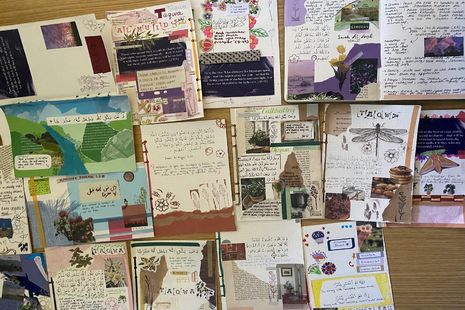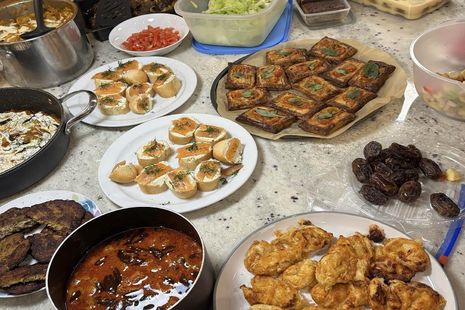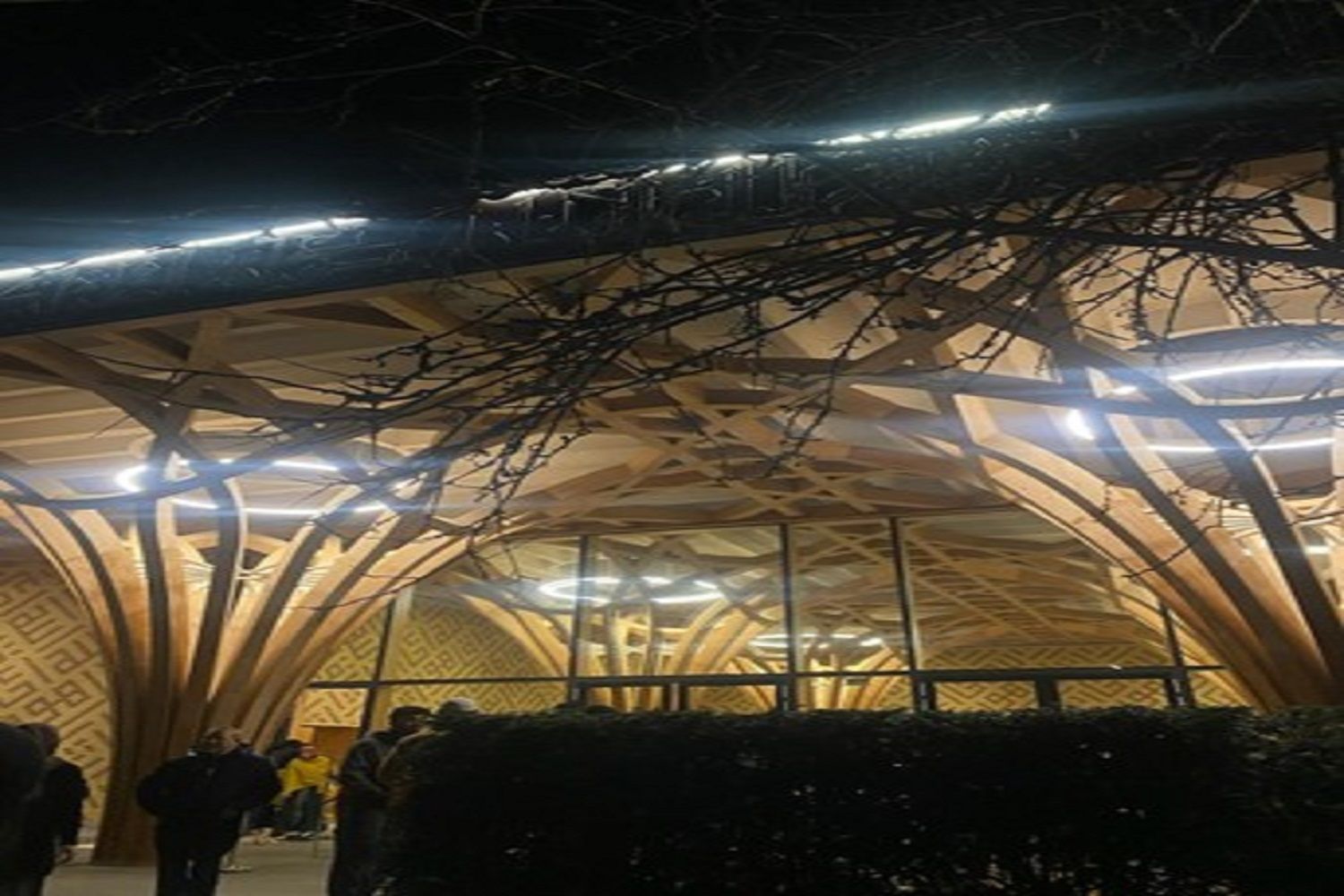Every year, Muslim students eagerly anticipate Ramadan for the collective sense of purpose and community it evokes through fasting and congregational prayer. Through conducting a survey and speaking with fellow Muslim students at Cambridge, I wanted to understand how their experiences of Ramadan were shaped by their university lifestyle. Ultimately, I found that the student experience was akin to living a double-life: keeping up with their degrees and university personas by day, and fervently worshipping by night.
“I turned essentially nocturnal when realising I wasn’t able to get my best work done” confessed Meerab, a second-year undergraduate reading English. Keeping up with the workload of a Cambridge degree is a feat in itself, but combined with low energy and fatigue from fasting roughly 12-13 hours per day, it seemed an almost impossible hurdle to overcome.
Others felt that the demands of their degree prevented them from spending Ramadan as they would have liked to. Hayyan, a second year engineering undergraduate, described his experience of juggling coursework with worship as “unlucky” and named his only regret being “the degree getting in the way of making the most of Ramadan”. Both Hayyan and Mustafid, another second year engineer, lamented the requirement to arrive at their departments at 9 am, finding it “challenging” to stay awake following late-night taraweeh prayers and suhoors, the meal eaten at dawn to prepare for their fast.
“From the 45 respondents, 38 (84.4%) reported difficulties in balancing their academic commitments, making it the most significant challenge faced of all those surveyed”
Students with more flexible schedules were able to rearrange their routines to align with changing priorities. Rumlah, for example, marvelled at her internal body clock reversing itself during her year intercalating in PBS. She recalled many “memorable moments” spent in worship until 5 am, after which she would catch up on sleep until resuming academic work at 3 pm.
These student testimonies coincide with the findings of my survey. From the 45 respondents, 38 (84.4%) reported difficulties in balancing their academic commitments, making it the most significant challenge faced for all those surveyed. It was followed closely by the difficulties of sleep deprivation (72.1%) and balancing worship (62.6%) – all three of which, from the above testimonies, appear to be mutually reinforcing. However, many students found they could rely on fellow observers and support networks, with only one third of respondents feeling alone in these struggles.

Many students took comfort in the knowledge that their experiences and struggles were shared by peers also observing Ramadan. Yusuf found discipline and inspiration in the habits and advice of his peers. He appreciated the level of “accountability” that his friend group held for each other, enabling them to stay focused and productive together amid an immensely busy schedule. Yusuf’s experience at Fitzwilliam is mirrored by that of another student at Murray Edwards, who cited a collegiate culture of mutual motivation as “evidence that we’re stronger than we think”.
“Ultimately, only 50% of survey respondents felt fully supported by their colleges and the University, as opposed to 93.5% who felt fully supported by their fellow students at CUISoc”
This year saw the continuation of the ‘Welfare Taxis’ scheme, which provided students with free transport between their colleges and the mosque after hours. My survey findings demonstrate a correlation between the scheme’s success and overall positive experiences of Ramadan. For Rumlah at Fitzwilliam, these provisions enabled her to “worship for hours on end […] knowing I was safe and transport was secured”.
While the scheme was transformative for some, students at Lucy Cavendish, Pembroke and Queen’s reported being unable to access the scheme consistently throughout the month. According to a representative from Lucy Cavendish’s Islamic Society, “communication was incredibly slow,” leaving students confused “until the very last days of the month”. Students at Lucy Cavendish reported that their “college did not provide [the scheme] except for the last ten days” and did not assist students on outbound journeys, only inbound back to college. Nonetheless, the representative from the college´s Islamic Society acknowledged that once arrangements were put in place, “[Lucy Cavendish] was very forthcoming about their budget limitations, and we reached a suitable compromise.”
Yet the uncertainty of some college provisions and instability of communication left several students feeling confused. Akmal, a postgraduate student at Lucy Cavendish, reported having “no idea” what provisions his college was providing. Similarly, another student from Queens’ reported that “communication with college was poor” and that he “didn’t know of any channels of communication” that he could access to address the issue. Ultimately, only 50% of survey respondents felt fully supported by their colleges and the University, as opposed to 93.5% who felt fully supported by their fellow students at CUISoc.
“From standing shoulder-to-shoulder in prayer to bumping into bleary-eyed flatmates in the kitchen at 4 am, students found a simple beauty in embracing the everyday in Ramadan”
This sentiment is elaborated in a recent survey conducted by Oxford Brookes University, in which 40% of interviewed educators had ‘no idea’ whether their Muslim students were fasting, and nearly a quarter could not say when Ramadan had occurred in 2024. 24.4% of my survey respondents reported that they struggled with communicating their needs to college and academic staff.

This struggle may have contributed to the sense of loneliness experienced by many respondents, which was often exacerbated by homesickness. In 2025, 32.6% of respondents were experiencing Ramadan away from home for the first time, and almost half of all respondents reported grappling with homesickness. For students experiencing Ramadan in Cambridge for the first time, especially freshers, a common theme was spiritual guilt. One student expressed disappointment in himself for not making “the most of it compared to other years” upon realising that living up to the standard he had previously set for himself was jeopardised by additional responsibilities, like cooking and academic pressure. For others, Ramadan unearthed pangs of homesickness through reminders that their religious community at home was now far away. One student described her experience of constantly explaining her religious practices to peers as “isolating”.
But according to one student at Newnham, “the loneliness you may feel only brings you back to [God].” When loneliness struck, many students embraced spiritual self-discovery by turning to their peers with similar experiences, finding their own routines and discovering new places to go. “I wasn’t really away from home,” explained one student, reflecting on regularly breaking her fast with other students.
For Nabeel, a third year medical student at Emmanuel, then intercalating in theology, the “regularity and thus dependability” of daily events provided him with a safe haven and distraction from degree-induced stressors. From standing shoulder-to-shoulder in prayer to bumping into bleary-eyed flatmates in the kitchen at 4 am, students found a simple beauty in embracing the everyday in Ramadan. Of all the anecdotes shared, I personally resonated most with the routine of one student at Lucy Cavendish who endeavoured to read the Qur’an in different locations, including Jesus Green and the Botanic Garden, immersing herself in the beauty of divine creation.
For students like Nabeel, Cambridge’s fast-paced culture made it easier to take refuge in new connections and traditions. For others, the pockets of calm and solitude were the antidote to homesickness and loneliness, reflecting the duality of positive experiences across the board. There is no ‘one size fits all’ experience of Ramadan, which is perhaps where the beauty of it all lies.


